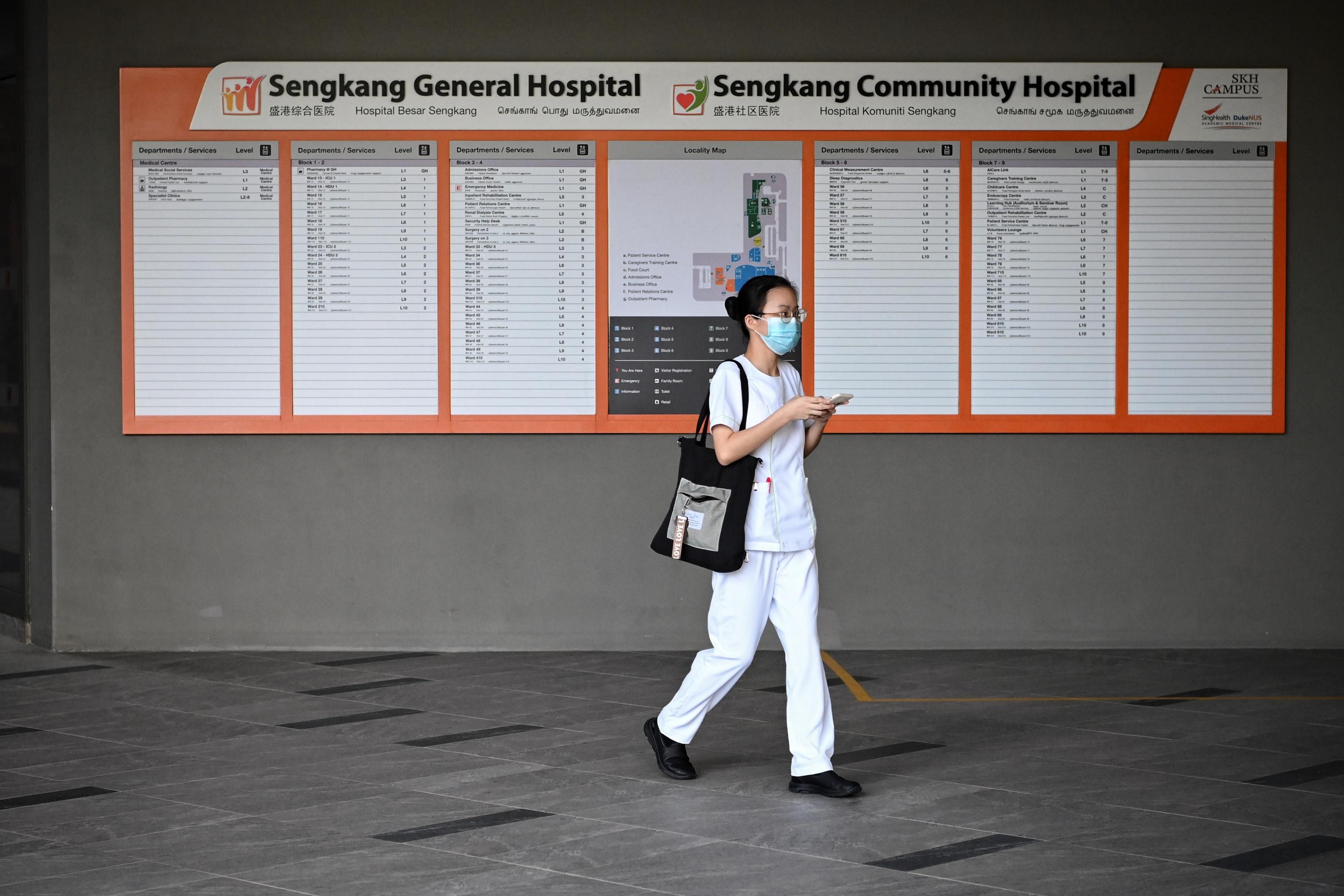More healthcare workers in S'pore quit amid growing fatigue as Covid-19 drags on
Sign up now: Get ST's newsletters delivered to your inbox
Follow topic:
SINGAPORE - Resignation rates among healthcare workers are going up, said Senior Minister of State for Health Janil Puthucheary on Monday (Nov 1).
Around 1,500 healthcare workers resigned in the first half of this year, compared with 2,000 annually pre-pandemic, he said.
"Foreign healthcare workers have also resigned in bigger numbers, especially when they are unable to travel to see their families back home," Dr Janil added.
So far, close to 500 foreign doctors and nurses have resigned in the first half of this year, compared with around 500 in the whole of 2020 and about 600 in 2019.
"These resignations were mostly tendered for personal reasons, for migration, or moving back to their home countries," he said in a ministerial statement in Parliament on Monday.
Dr Janil noted that for healthcare workers, it has been over 20 months of continuous daily battles against the pandemic, with a large proportion of them unable to take leave since last year.
Over 90 per of them will not be able to clear their accumulated leave for this year, he noted.
"This is a higher proportion compared to the past two years. Our healthcare workers have gone way beyond the call of duty to care for their patients," he added.
For the month of September, nurses worked for an average of 160 to 175 hours per month.
"I received a WhatsApp message from a senior member of the clinical teams: 'We are getting increasingly stretched, overworked and fatigued... We are uncertain how long we can keep this up. Morale is slipping'," Dr Janil said.
Another colleague sent the following message: "It feels like what started as a 2.4km run became a marathon, and just as we are reaching the finishing line, we have to run a second marathon. Our people are exhausted physically, mentally, emotionally - whether they will admit it or not."
With healthcare workers being continuously overstretched, it is "not surprising" to find resignation rates going up this year.
The Ministry of Health (MOH) is actively redeploying its manpower, to serve as healthcare or patient care assistants at its institutions, he said.
"We are reaching out to more volunteers to join the SG Healthcare Corps and support this important work. We are collaborating with private hospitals to help ease some of the load on healthcare workers in our public hospitals. We are stepping up recruitment of healthcare workers from overseas," said Dr Janil.
Leader of the Opposition Pritam Singh asked for the foreign recruitment figures over the same period, explaining that it would be helpful "to have the numbers that are coming on board and not just the numbers leaving".
Dr Janil responded by saying that he does not have any specific numbers, but one of the challenges of recruiting more foreign manpower is that they may be inexperienced in Singapore's healthcare environment and protocols.
Therefore, recruiting more staff will augment manpower in other parts of the healthcare ecosystem, but is unlikely to make a "huge difference" in the intensive care unit (ICU).
"We hope that we can displace a little bit of the manpower into some of the high-acuity areas, and then release a few people who go and help in the ICU. But I think this is a bit more of a medium-term strategy, rather than something that we can rely on as an urgent fix to our current problem," he added.
Unlike in a "terrible disaster" where there are mass casualties and a high number of patients in the ICU but patients would not stay long, the current pandemic is equivalent to a "low-intensity conflict", said Dr Janil.
This means that the healthcare system has to be on high alert and readiness for weeks and months, making it difficult for MOH to determine how long the hospitals will have to carry a certain load or a certain number of patients.
"Your surge capacity at the start of a low-intensity conflict is very different after two years... and after one month. And even with this current surge... there's really no way to know or model how long it is going to last and what the peak is," he added.

For the month of September, nurses worked for an average of 160 to 175 hours per month.
ST PHOTO: KUA CHEE SIONG
Workers' Party MP Jamus Lim (Sengkang GRC) also asked why there had not been a more "concerted effort" to increase Singapore's hospital capacity and bring in the relevant manpower during the earlier half of the year, when there was a lull period in the number of Covid-19 cases.
Dr Janil said MOH has been opening up ICU capacity "ahead of the curve", but not so far ahead that staff remain idle while other services are undermanned.
He added that ICU care requires staff to be experienced in looking after ICU patients, and training and redeployment of staff have been done "ahead of the curve" so that they can be deployed to the ICU when needed.
Dr Janil added that public healthcare institutions have also stepped up their outreach to staff on support measures to safeguard their well-being.
This includes providing counselling services, staff helplines and peer support programmes.
In response to a question raised by Dr Tan Wu Meng (Jurong GRC) regarding hospital departments factoring in sick leave as one of the indicators of work performance, Dr Janil said that these were previously isolated incidents, and the practice has since been ceased.
"Healthcare workers who are concerned about the way sick leave affects their performance appraisals can approach their union, the Ministry of Manpower or MOH for assistance," he added.

